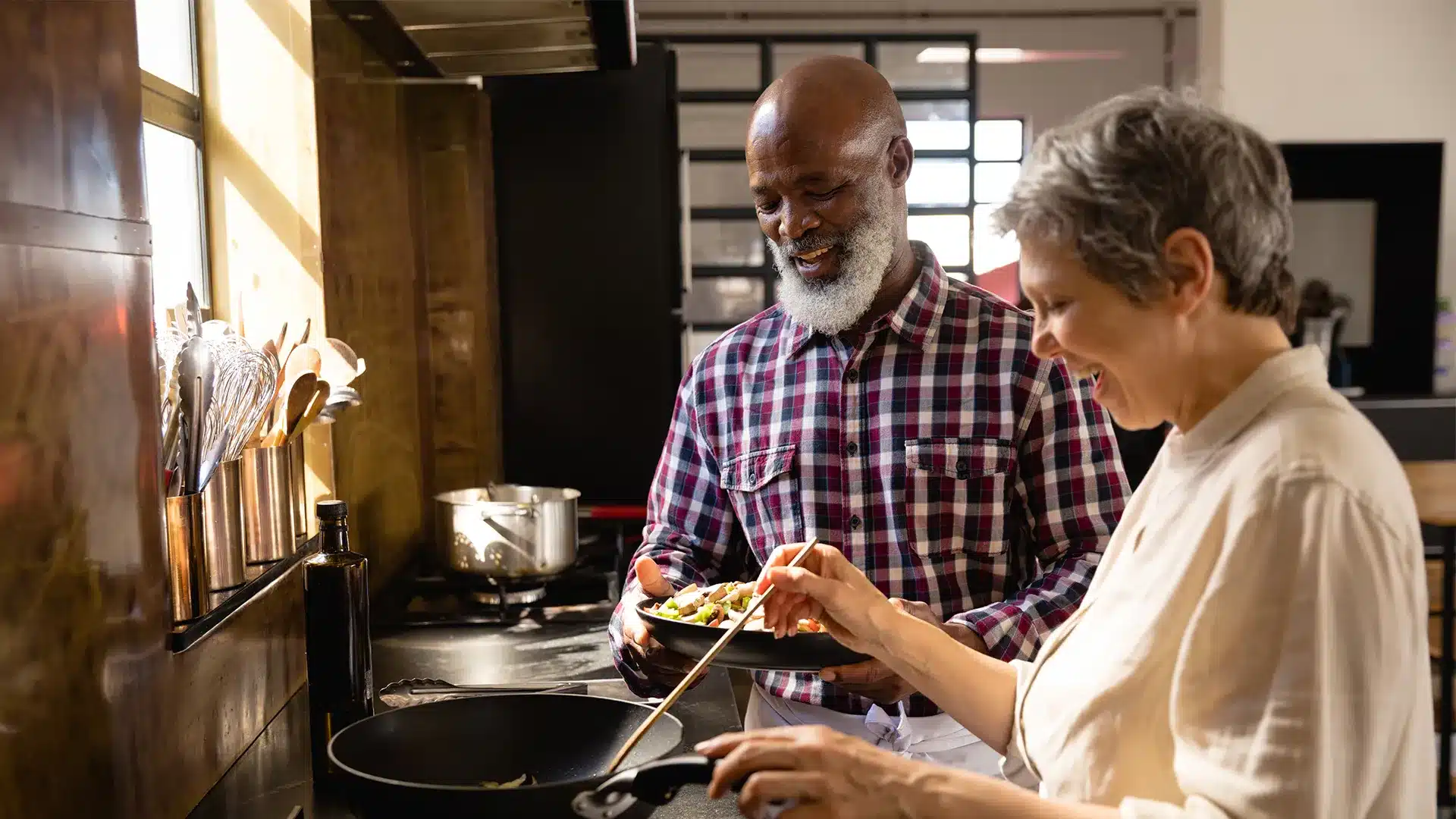Achieving optimal vision after cataract surgery requires an active approach to recovery. It’s more than just waiting for improvement; it’s about jumpstarting your journey to sharper vision by including adjustments to your daily activities. A key area that often gets overlooked during the healing process is cooking after cataract surgery. While you might be eager to get back in the kitchen to whip up your favorite meals, taking a break is essential for a safe and successful recovery. This article explores why this break is necessary, how you can simplify mealtime during this time, and how to resume cooking in the kitchen once you’ve received the all-clear.
Why Hit Pause On Cooking After Cataract Surgery?
1. Light and Heat Sensitivity: Your eyes may be more sensitive to bright lights and heat sources like stoves or ovens, causing discomfort and strain on your healing eyes.
2. Depth Perception Issues: Cataract surgery can temporarily affect your depth perception, making it difficult to judge distances accurately when handling hot pots, pans, or sharp utensils.
3. Infection Risks: There is a risk of infection if water, soap, or other liquids get into your healing eye. The moist, humid kitchen environment increases the possibility of a situation that would require you to rinse your eyes.
4. Physical Demands: Cooking often involves bending, and lifting heavy objects like cookware, which can put unnecessary pressure on your recovering eye.
5. Vision Impairment: Your vision is still adjusting and is impaired in the initial stages of healing, making it a challenge to read recipes, measure ingredients, or monitor food properly.
6. Potential Dangers: Cooking after cataract surgery increases risks like burns from hot surfaces, slips and falls due to reduced mobility, accidental cuts from knives, and exposure to chemical cleaners.
How Long Do I Need To Wait To Get Back To Cooking After Cataract Surgery?
How Can I Simplify My Meal Prep Without Cooking After Cataract Surgery?
- Love Cooking Or Want Specific Meals During Recovery? Meal Prep! A great way to make sure that you have nutritious meals while not cooking after cataract surgery is to prepare meals in advance and freeze them for easy reheating as you recuperate.
- Leverage Meal Delivery. If this is in your budget, consider taking advantage of local takeout or meal delivery services that are either delivered hot or can be microwaved when wanted.
- Explore No Cook Options. There are tons of options for eating that don’t require cooking, like salads, cold cut sandwiches, and pre-prepared meals from grocers like rotisserie chickens, pre-cut veggies and hummus, or pre-made grain bowls.
- Enlist The Help From Family & Friends. During your recovery, don’t hesitate to ask for help from your loved ones. They can meal prep, handle grocery shopping, or even bring you over meals that can be frozen and reheated for you.
How Can I Resume Cooking After Cataract Surgery, Safely?
Want More Information?
If you’re seeking more information on navigating the post-surgery cataract landscape, don’t hesitate to read through our other cataract-related posts. If you have specific questions about your recovery, please contact the team here at Brimhall Eye Center by phoning (702) 263-2020 or using our contact form.





